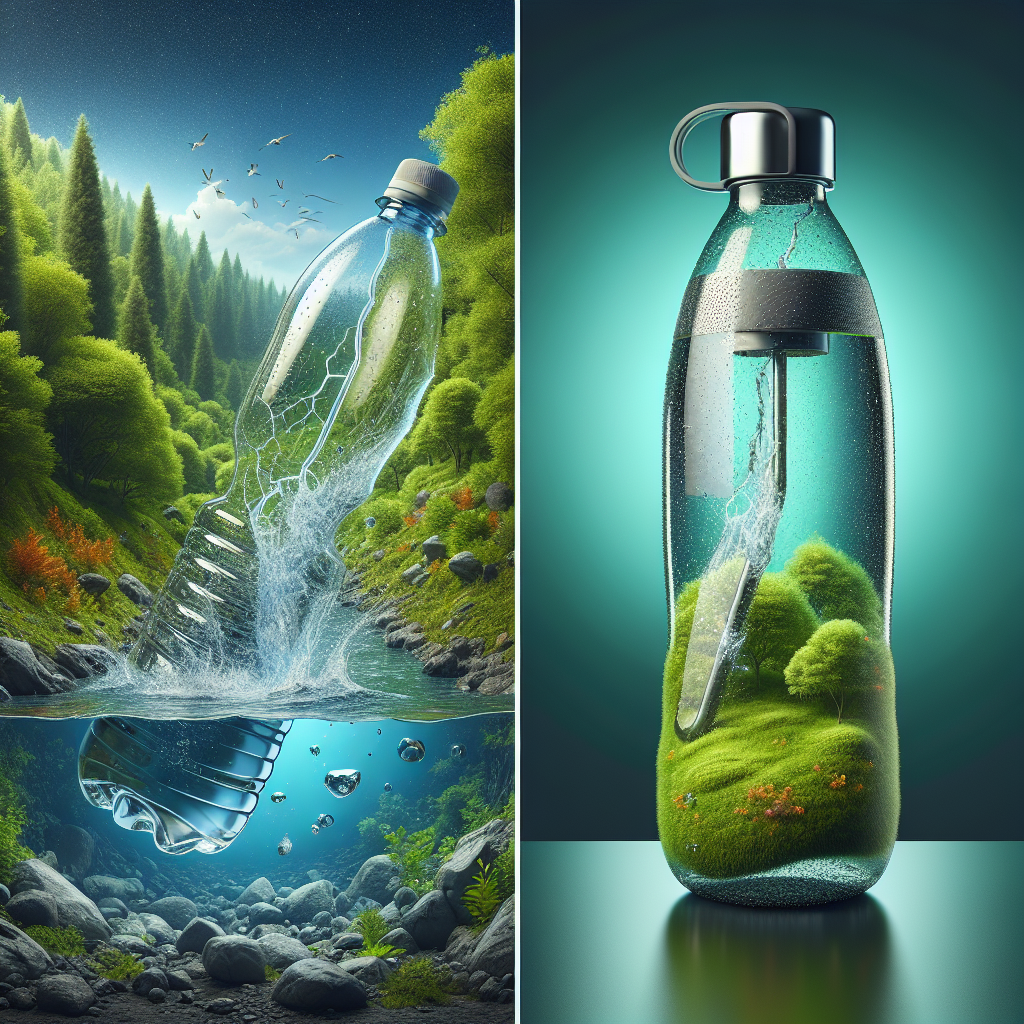The Controversy Over Bottled Water: Environmental Impact and Alternatives
In recent years, bottled water has become a lightning rod for environmental controversy. On the surface, it seems like a convenient and harmless product. However, digging deeper reveals significant environmental ramifications and a debate that continues to grow louder. This article delves into the controversy surrounding bottled water, examining its environmental impact and exploring viable alternatives.
The Environmental Impact of Bottled Water
1. Resource Extraction and Depletion
One of the primary environmental concerns associated with bottled water is the extraction and depletion of natural resources. Producing a single bottle of water requires the use of approximately three times the amount of water contained in the bottle itself. This includes the water used in the manufacturing process, cooling, and bottling. Additionally, the oil required to produce the plastic bottles contributes to the depletion of non-renewable fossil fuels.
2. Plastic Pollution
Plastic pollution is perhaps the most visible issue linked to bottled water. According to the Ellen MacArthur Foundation, by 2050, there could be more plastic than fish in the ocean, by weight. Plastic bottles contribute significantly to this problem. Every year, millions of tons of plastic waste find their way into the world’s oceans, creating gyres of floating debris and harming marine life. The production of plastic bottles also releases harmful chemicals into the environment, exacerbating pollution problems.
3. Carbon Footprint
The carbon footprint of bottled water is another significant concern. From manufacturing the bottles to transporting them globally, the entire lifecycle of bottled water contributes to greenhouse gas emissions. The energy required to produce, fill, transport, and refrigerate bottled water is considerably higher than that for tap water. According to the Pacific Institute, the energy cost of bottled water is up to 2,000 times greater than that of tap water.
4. Landfill Overflow
Despite recycling efforts, a significant portion of plastic bottles ends up in landfills. In the United States alone, only about 30% of plastic bottles are recycled. The rest contribute to the growing problem of landfill overflow. Plastic bottles can take up to 1,000 years to decompose, leaching harmful chemicals into the soil and groundwater in the process.
Alternatives to Bottled Water
Given the substantial environmental impact of bottled water, exploring alternatives is crucial. Fortunately, there are several viable options that are both environmentally friendly and convenient.
1. Tap Water
Tap water is arguably the most accessible and economical alternative to bottled water. In many developed countries, tap water is subject to stringent quality controls, making it safe to drink. Investing in a good water filter can help address any concerns about taste or contaminants.
2. Reusable Water Bottles
Reusable water bottles, made from materials like stainless steel, glass, or BPA-free plastic, are an excellent alternative. They can be refilled countless times and significantly reduce the demand for single-use plastic bottles. Additionally, many reusable bottles are designed to keep water cold or hot for extended periods, adding to their convenience.
3. Water Fountains and Refill Stations
Public water fountains and refill stations are becoming increasingly common in urban areas, schools, and workplaces. These provide a convenient way to refill water bottles on the go, reducing the need for bottled water. Some cities have even introduced hydration stations that offer filtered water for free or at a minimal cost.
4. Home Filtration Systems
Home water filtration systems, such as under-sink filters, countertop units, and refrigerator filters, can provide a steady supply of clean drinking water. These systems can remove contaminants, improve taste, and offer a more sustainable alternative to bottled water.
5. Water Delivery Services
For those who prefer the convenience of bottled water, water delivery services that use large, reusable jugs can be a more sustainable option. These services typically deliver water in 5-gallon containers that can be refilled and reused numerous times.
FAQs
Q1. Is bottled water safer than tap water?
A1. In many developed countries, tap water is subject to rigorous testing and quality controls, often making it as safe or even safer than bottled water. However, the safety of tap water can vary depending on the location and infrastructure. Using a water filter can help ensure the quality of tap water.
Q2. What are the health impacts of drinking from plastic bottles?
A2. Some plastic bottles contain chemicals like BPA (bisphenol A), which can leach into the water and pose health risks. Opting for BPA-free bottles or those made from stainless steel or glass can mitigate these concerns.
Q3. How can I reduce my reliance on bottled water?
A3. There are several ways to reduce reliance on bottled water, including using reusable water bottles, investing in a home water filtration system, and utilizing public water fountains and refill stations.
Q4. Are there any biodegradable alternatives to plastic water bottles?
A4. Yes, there are biodegradable and compostable water bottles made from materials like plant-based plastics and algae. However, these options are still not as widely available and can be more expensive than traditional plastic bottles.
Q5. What is the most environmentally friendly way to drink water on the go?
A5. Using a reusable water bottle filled with tap water or water from a refill station is the most environmentally friendly way to drink water on the go. This approach minimizes waste and reduces your carbon footprint.
Conclusion
The controversy over bottled water is rooted in its substantial environmental impact, from resource depletion and plastic pollution to its carbon footprint and landfill contribution. Fortunately, there are several viable alternatives that can help mitigate these issues. By choosing tap water, reusable bottles, and other sustainable options, individuals can play a crucial role in reducing the environmental impact of bottled water and fostering a more sustainable future.

